Introduction
Is Cat Grass Good For Cats: Many cat owners have heard of cat grass and may wonder if it is beneficial for their furry friends. Cat grass is a type of grass that is specifically grown for cats to eat. It is often sold in pet stores and can also be grown at home.
It is important to understand why cats eat grass in the first place. Cats are obligate carnivores, which means that their bodies are designed to primarily eat meat. However, they also have a natural instinct to consume small amounts of plant matter. Eating grass can help cats to expel hairballs from their digestive system and can also provide them with certain nutrients that they may be lacking in their diet.
Cat grass is safe for cats to eat and cat collar provide them with several benefits. It is rich in fiber, which can help to improve digestion and prevent constipation. The act of chewing on grass can also help to clean a cat’s teeth and gums, promoting good oral health. Additionally, some cats simply enjoy the taste and texture of grass, and providing them with cat grass can be a way to satisfy this natural instinct.
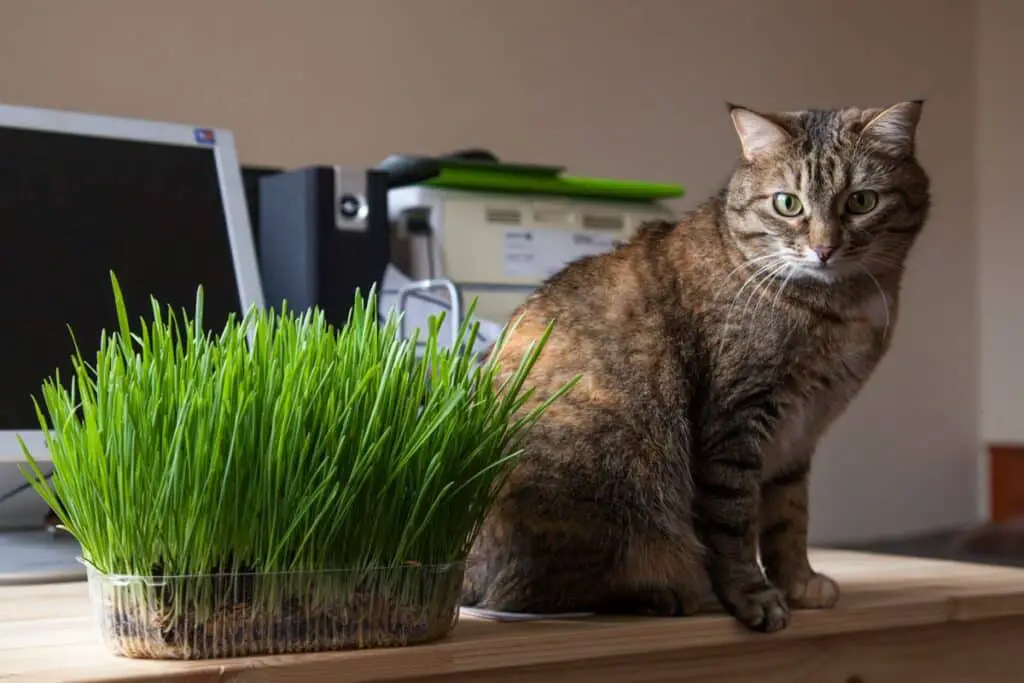
Do vets recommend cat grass?
When it comes down to it, is cat grass safe? Yes, especially if you take care to buy the appropriate kit or seeds and, as always, keep an eye on your cat’s habits and health. If you notice anything out of the ordinary, contact your vet right away.
Yes, vets do recommend cat grass for several reasons. Cat grass is a type of grass that is specifically grown for cats to eat. It is usually a mix of different types of grasses, such as wheatgrass, barley grass, and oat grass. Many pet owners wonder if it is necessary to provide their cats with cat grass, and the answer is yes, according to veterinarians.
Firstly, cat grass provides several health benefits for cats. One of the main reasons why vets recommend cat grass is because it aids in digestion. Cats are obligate carnivores, which means that their bodies are designed to primarily digest meat. However, they also have a natural instinct to eat grass, which helps them to eliminate hairballs and aids in digestion. Cat grass acts as a natural laxative, helping to move hairballs through the digestive system and prevent blockages.
Secondly, cat grass can also provide mental and emotional stimulation for cats. Indoor cats, in particular, may not have access to fresh grass or other plants, so providing them with cat grass can help to satisfy their natural instincts. Chewing on grass can be a form of stress relief for cats and can help to prevent boredom and destructive behavior.
Additionally, cat grass can also help to prevent cats from chewing on other potentially harmful plants. Some houseplants can be toxic to cats if ingested, so providing them with cat grass can redirect their chewing behavior to a safe and healthy alternative.
What does cat grass do for your cat?
Cat grass is not actually a specific plant, but rather a mixture of seeds like wheat, barley, oats, and rye. Cat grass contains healthy folic acid, which aids your kitty’s bloodstream. It also acts as a laxative to help push out food or hairballs that are upsetting your cat’s stomach.
Cat grass is a type of grass that is specifically grown for cats to eat. It is usually a mix of different types of grasses, such as wheatgrass, barley grass, and oat grass. Many cat owners wonder what the purpose of cat grass is and what benefits it provides for their furry friends. We will explore what cat grass does for your cat and why it is beneficial for them.
Firstly, cat grass is a great source of fiber for cats. It helps to promote healthy digestion and prevent hairballs. When cats groom themselves, they often ingest a significant amount of fur, which can lead to the formation of hairballs in their digestive system. Cat grass acts as a natural laxative, helping to move the hairballs through the digestive tract and prevent blockages.
Secondly, cat grass provides mental and physical stimulation for cats. Cats are natural hunters and explorers, and having access to cat grass allows them to engage in these natural behaviors. They can stalk, pounce, and nibble on the grass, which provides both mental and physical exercise. This can help to prevent boredom and reduce stress in indoor cats.
Additionally, cat grass can help to prevent cats from chewing on other plants in the house. Many houseplants are toxic to cats, and chewing on them can lead to poisoning. By providing cat grass as an alternative, you can redirect your cat’s chewing behavior and keep them safe from harmful plants.
Cat grass can also help to freshen your cat’s breath. Chewing on the grass can help to remove plaque and tartar from their teeth, reducing bad breath. It also provides a natural source of chlorophyll, which acts as a natural deodorizer.
Is cat grass good for cats stomach?
Is Cat Grass Safe? One long-standing cat myth is that cats only eat grass when they are sick, but research shows that this is not the case. In addition to providing enjoyment, cat grass benefits your kitty’s life by helping her digestive system.
Yes, cat grass is good for a cat’s stomach. Cats are obligate carnivores, which means their bodies are designed to primarily eat meat. However, they also have a natural instinct to eat grass. This instinct is believed to help them in several ways, including aiding in digestion and eliminating hairballs.
Cat grass is a type of grass that is safe for cats to eat. It is usually a variety of wheat, oat, or barley grass. When cats eat grass, it acts as a natural laxative, helping to move any indigestible material through their digestive system. This can be particularly beneficial for cats that are prone to constipation or hairballs.
Cat grass can also provide important nutrients to a cat’s diet. Grass contains essential vitamins and minerals that can help support a cat’s overall health. It can also help to cleanse the digestive system and promote healthy bowel movements.
Can I give my cat grass everyday?
Can I feed my cat grass every day? There is no set rule for how much cat grass you should give your cat. Cat grass is safe for them to eat and has lots of benefits, but like everything else they should eat it in moderation so no more than 10% of their diet.
Yes, you can give your cat grass everyday. In fact, many veterinarians recommend it as a healthy addition to your cat’s diet. Grass provides several benefits for cats, both physically and mentally. It is a natural source of fiber, which helps with digestion and can prevent hairballs. Additionally, grass contains essential nutrients such as vitamins A and C, as well as chlorophyll, which can help detoxify your cat’s system.
One of the main reasons why cats eat grass is to induce vomiting. Cats are obligate carnivores, which means their bodies are designed to primarily digest meat. However, they may occasionally ingest indigestible materials such as fur or bones. Eating grass can help cats expel these materials from their stomachs, providing relief from any discomfort or irritation.
Grass can also serve as a form of environmental enrichment for indoor cats. Cats have a natural instinct to hunt and explore, and providing them with access to grass can help satisfy these instincts. It can also provide mental stimulation and prevent boredom, which can lead to destructive behaviors.
When giving your cat grass, it is important to ensure that it is safe and free from pesticides or other harmful chemicals. You can either grow your own cat grass at home or purchase it from pet stores. It is recommended to choose grass varieties that are specifically grown for cats, such as wheatgrass or oat grass.
While grass is generally safe for cats to consume, it is important to monitor their behavior and ensure they do not eat excessive amounts. If you notice any signs of distress or abnormal behavior after your cat has eaten grass, it is best to consult with your veterinarian for further guidance.
Is it normal for a cat to vomit after eating cat grass?
If you’ve ever witnessed a cat eating grass and throwing up, you might be surprised to know they’re likely doing it on purpose. Cats don’t have the necessary enzymes to digest a large amount of grass, which is why it can make them sick.
Yes, it is normal for a cat to vomit after eating cat grass. Cat grass, also known as catnip or catmint, is a type of grass that is safe for cats to eat. It is often grown indoors in pots or trays and is a popular treat for many cats. However, some cats may experience vomiting after consuming cat grass, and this is considered to be a normal reaction.
When a cat eats cat grass, it can stimulate their digestive system and cause them to vomit. This is because cats are unable to fully digest grass, and it can irritate their stomach lining. The act of vomiting helps to expel the grass from their system and relieve any discomfort they may be feeling.
Vomit after eating cat grass. Some cats may be more sensitive to the grass and may experience more frequent vomiting, while others may not vomit at all. Additionally, the amount of grass consumed can also play a role in whether or not a cat vomits. If a cat eats a large amount of grass, they may be more likely to vomit than if they only consume a small amount.
If your cat vomits after eating cat grass, it is generally nothing to be concerned about. However, if the vomiting becomes frequent or is accompanied by other symptoms such as diarrhea or loss of appetite, to consult with a veterinarian. They can help determine if there is an underlying issue causing the vomiting or if it is simply a normal reaction to the cat grass.
Cat grass, also known as kitty grass or catnip grass, offers several benefits for cats. Firstly, it provides a natural source of fiber, which aids in digestion and helps prevent hairballs. The grass acts as a natural laxative, promoting healthy bowel movements and reducing the risk of constipation.
Additionally, cat grass can help satisfy a cat’s natural instinct to chew and nibble on plants. This can be particularly beneficial for indoor cats who may not have access to outdoor vegetation. Chewing on cat grass can help alleviate boredom and provide mental stimulation, reducing the likelihood of destructive behavior.
Cat grass contains essential vitamins and minerals that contribute to a cat’s overall health. These nutrients can support a strong immune system, promote healthy skin and coat, and improve overall well-being. Overall, incorporating cat grass into a cat’s diet can provide numerous benefits and enhance their quality of life.
Is cat grass safe for cats to consume?
Yes, cat grass is generally safe for cats to consume. In fact, it can provide several benefits for their overall health and well-being. Cat grass is a type of grass that is specifically grown for cats to eat. It is rich in essential nutrients and fiber, which can help improve digestion and prevent hairballs. Additionally, chewing on cat grass can help satisfy a cat’s natural instinct to chew and can provide mental stimulation.
Grass are safe for cats. Some plants, such as certain types of lilies, can be toxic to cats if ingested. Therefore, it is crucial to choose cat grass that is specifically labeled as safe for feline consumption. It is also recommended to consult with a veterinarian before introducing cat grass into your cat’s diet, especially if your cat has any underlying health conditions or allergies.
How does cat grass contribute to a cat’s overall health and well-being?
Cat grass plays a crucial role in enhancing a cat’s overall health and well-being. Firstly, cat grass is rich in essential nutrients such as vitamins A, C, and E, as well as minerals like calcium and iron. These nutrients are vital for maintaining a cat’s immune system, promoting healthy digestion, and supporting optimal organ function. By consuming cat grass, cats can obtain these nutrients naturally, which can contribute to their overall health and vitality.
In addition to providing essential nutrients, cat grass also serves as a natural source of fiber. Fiber is essential for maintaining a healthy digestive system in cats. It aids in preventing constipation and promoting regular bowel movements. By consuming cat grass, cats can benefit from the fiber content, which can help regulate their digestive system and prevent gastrointestinal issues.
Cat grass can also serve as a natural stress reliever for cats. Cats are known to be curious creatures, and having access to cat grass allows them to engage in natural behaviors like chewing and nibbling. This chewing action can help alleviate stress and anxiety in cats, providing them with a sense of comfort and relaxation. Additionally, the act of chewing on cat grass can also help cats maintain healthy dental hygiene by reducing plaque and tartar buildup on their teeth.
How does cat grass contribute to a cat’s overall health and well-being?
Cat grass, also known as catnip or catmint, offers several benefits for a cat’s overall health and well-being. Firstly, cat grass is a great source of fiber, which aids in digestion and helps prevent hairballs. When cats groom themselves, they often ingest loose fur, which can accumulate in their digestive system and lead to hairballs. By consuming cat grass, cats are able to naturally eliminate this excess fur through their stool, reducing the risk of hairball formation.
In addition to aiding digestion, cat grass also provides mental and emotional stimulation for cats. Chewing on the grass blades can help relieve stress and anxiety, providing a calming effect on cats. This is especially beneficial for indoor cats who may not have access to outdoor plants and grass. The act of chewing on cat grass also helps to keep a cat’s teeth clean and healthy by removing plaque and tartar buildup.
What are some recommended types or varieties of cat grass for optimal feline health?
When it comes to choosing the right type of cat grass for your feline friend, there are a few options that are highly recommended for optimal feline health. One popular choice is wheatgrass, which is known for its high nutritional value. Wheatgrass is packed with vitamins A, C, and E, as well as essential minerals like iron and calcium. It also contains chlorophyll, which can help with digestion and detoxification.
Another recommended type of cat grass is oat grass. Oat grass is rich in fiber, which can aid in digestion and help prevent hairballs. It is also a good source of vitamins and minerals, including vitamin B6 and potassium. Oat grass is often preferred by cats who have sensitive stomachs or are prone to digestive issues.
Barley grass is another excellent choice for cat grass. It is high in antioxidants, which can help boost the immune system and protect against cellular damage. Barley grass also contains enzymes that can aid in digestion and promote a healthy gut. Additionally, it is a good source of vitamins A and C, as well as minerals like magnesium and iron.

Conclusion
Cat grass can be a beneficial addition to a cat’s diet and overall well-being. It provides several advantages for cats, including aiding in digestion, preventing hairballs, and providing mental stimulation. Cats may have the same reaction to cat grass, and some may not show any interest in it at all.
One of the main benefits of cat grass is its ability to aid in digestion. Cats are obligate carnivores, meaning their bodies are designed to primarily digest meat. However, they may occasionally consume small amounts of grass in the wild to help with digestion. Cat grass provides a safe and convenient alternative for indoor cats to fulfill this natural instinct. The fiber in cat grass can help move hairballs through the digestive system, preventing blockages and discomfort.
Additionally, cat grass can provide mental stimulation for cats. Indoor cats may not have access to the same environmental enrichment as outdoor cats, which can lead to boredom and behavioral issues. Having cat grass available can give cats a safe and engaging activity to occupy their time. They can chew on the grass, roll around in it, or simply observe it, which can help alleviate stress and promote overall well-being.
To monitor your cat’s reaction to cat grass. While most cats can safely consume it, some may have adverse reactions such as vomiting or diarrhea. If your cat shows any signs of discomfort or illness after consuming cat grass, it is best to consult with a veterinarian. To ensure that the cat grass is free from any pesticides or chemicals that could be harmful to your cat.

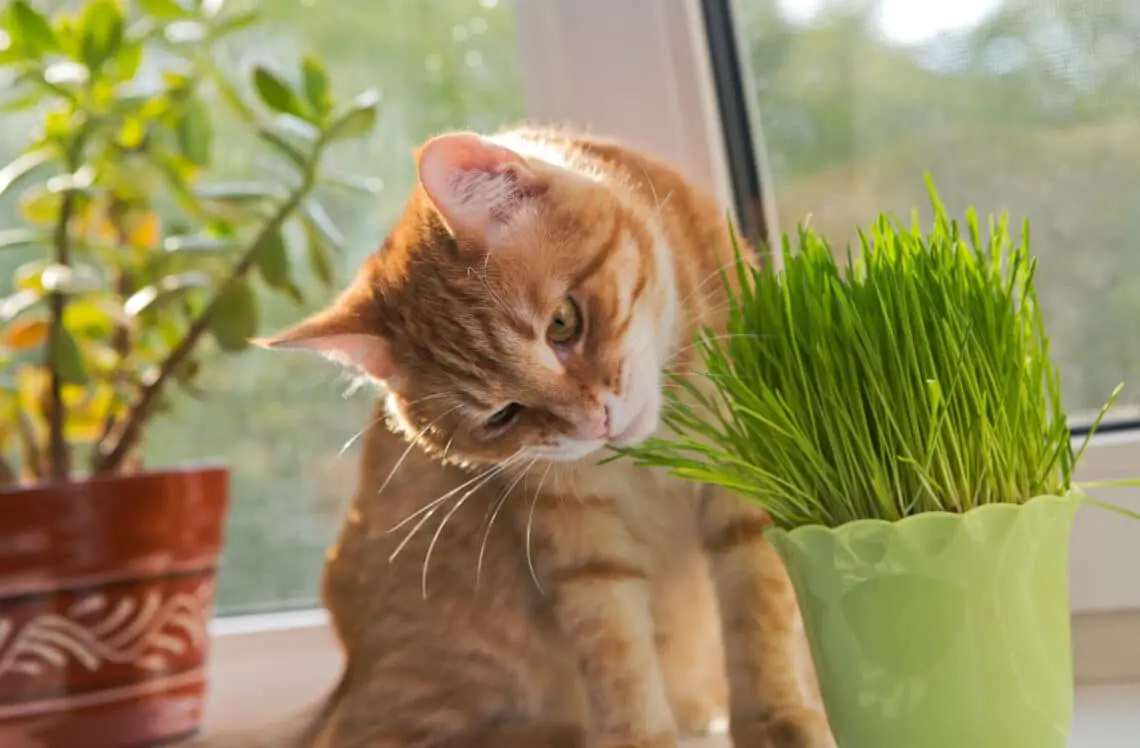
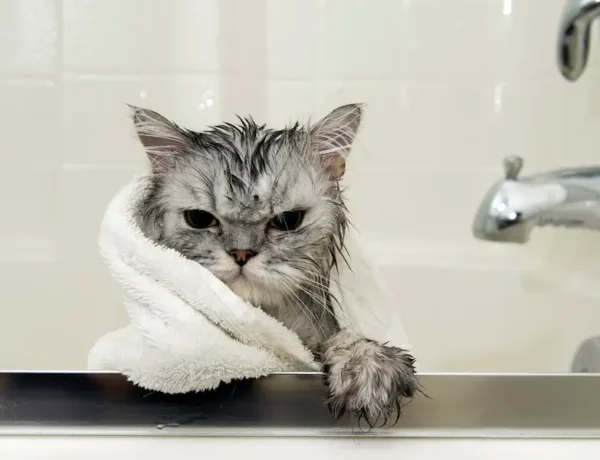
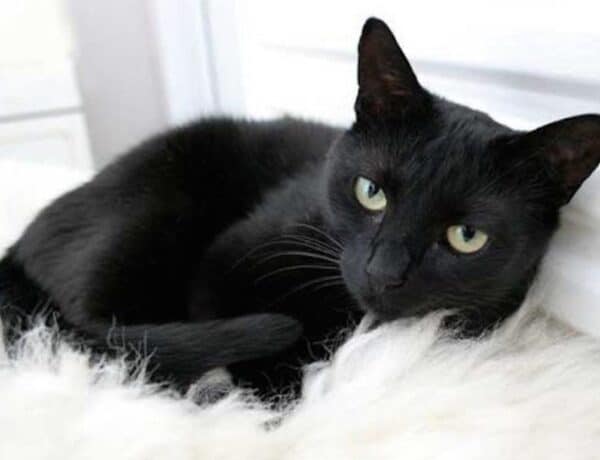
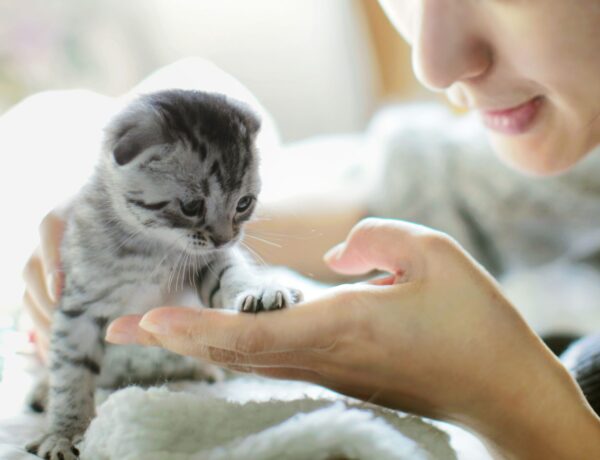
No Comments